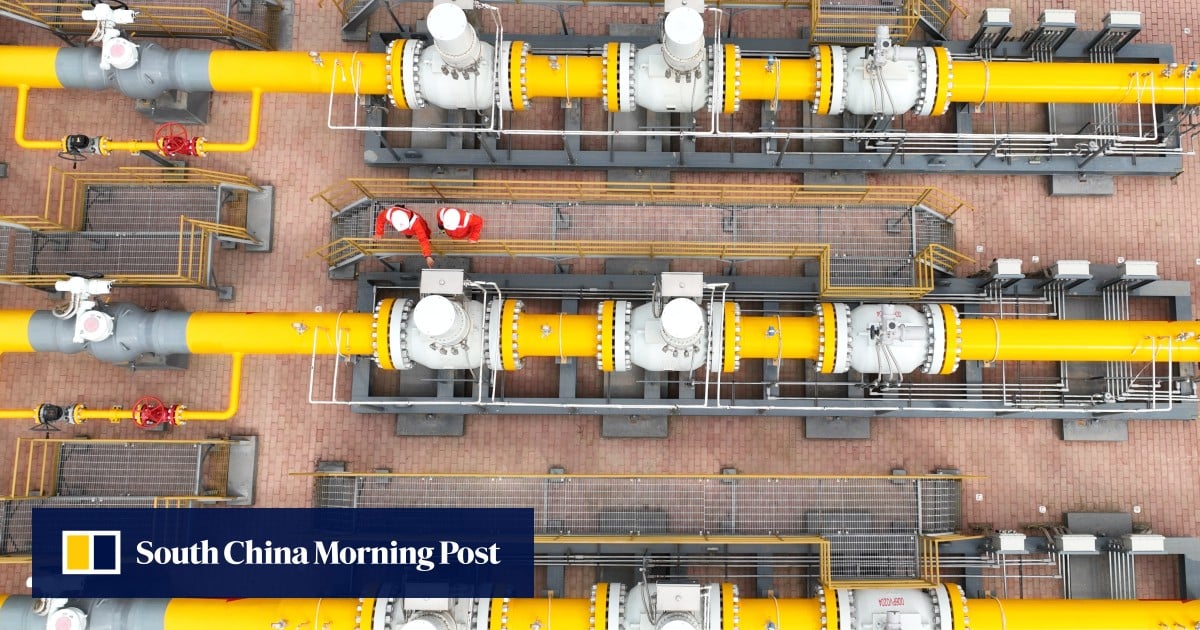Final section of the east-route natural gas pipeline between China and Russia completed seven months ahead of schedule.
Russian gas is expected to power households in Shanghai by the end of the year after Chinese workers finished building the final section of the east-route natural gas pipeline between the two countries, China’s state television said on Monday.
The 5,111km-long gas route, a signature project underscoring tightening economic ties between China and its resource-rich neighbour, would provide “stable natural gas supply” for a combined 130 million households each year, it added.
The project, touted as having the world’s largest single-pipe capacity, would “make important contributions to optimising China’s energy consumption structure, promoting green transformation, and helping to achieve the ‘dual carbon’ goals,” CCTV said.
China has set a target of reaching peak carbon emissions by 2030 and carbon neutrality by 2060.
Chinese construction workers have accelerated the building progress of the southern section, which starts in Hebei province and ends in Shanghai, since it broke ground in 2020, and finished the whole project seven months ahead of schedule, PipeChina official Cui Zong told CCTV.
Energy trade between China and Russia has jumped in recent years as Western economies have boycotted commodities from Russia following its invasion of Ukraine.
Last year, pipeline gas supplies from Russia climbed by 61.7 per cent from a year earlier to US$6.4 billion, making China its second-largest importer after Turkmenistan, according to Russian state agency TASS.
The volume of Russian crude shipped to China also rose by 24 per cent in 2023 from a year earlier to 107.02 million metric tonnes – equivalent to 2.14 million barrels per day – according to China’s General Administration of Customs.



Peak carbon emissions in 2030 and net neutral by 2060. While they have been appearing news wise to making great strides in renewables this is still wildly too slow…